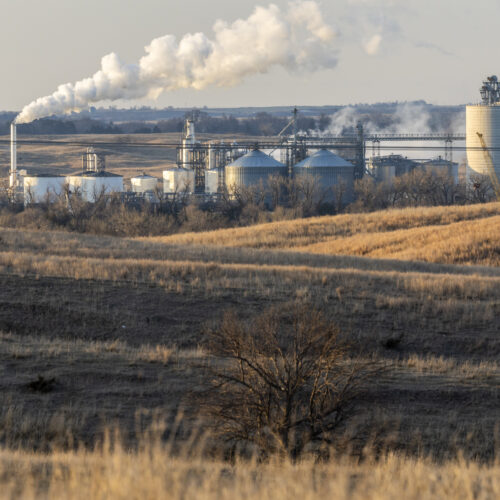The new report concludes that not only will the expansion of ethanol increase greenhouse gas emissions, but it has also failed to provide the social and financial benefits to Midwestern communities that lawmakers and the industry say it has. (The report defines the Midwest as Illinois, Indiana, Iowa, Kansas, Michigan, Minnesota, Missouri, Nebraska, North Dakota, Ohio, South Dakota, and Wisconsin.)
“The benefits from biofuels remain concentrated in the hands of a few,” Leslie-Bole said. “As subsidies flow, so may the trend of farmland consolidation, increasing inaccessibility of farmland in the Midwest, and locking out emerging or low-resource farmers. This means the benefits of biofuels production are flowing to fewer people, while more are left bearing the costs.”
New policies being considered in state legislatures and Congress, including additional tax credits and support for biofuel-based aviation fuel, could expand production, potentially causing more land conversion and greenhouse gas emissions, widening the gap between the rural communities and rich agribusinesses at a time when food demand is climbing and, critics say, land should be used to grow food instead.
President Donald Trump’s tax cut bill, passed by the House and currently being negotiated in the Senate, would not only extend tax credits for biofuels producers, it specifically excludes calculations of emissions from land conversion when determining what qualifies as a low-emission fuel.
The primary biofuels industry trade groups, including Growth Energy and the Renewable Fuels Association, did not respond to Inside Climate News requests for comment or interviews.
An employee with the Clean Fuels Alliance America, which represents biodiesel and sustainable aviation fuel producers, not ethanol, said the report vastly overstates the carbon emissions from crop-based fuels by comparing the farmed land to natural landscapes, which no longer exist.
They also noted that the impact of soy-based fuels in 2024 was more than $42 billion, providing over 100,000 jobs.
“Ten percent of the value of every bushel of soybeans is linked to biomass-based fuel,” they said.












